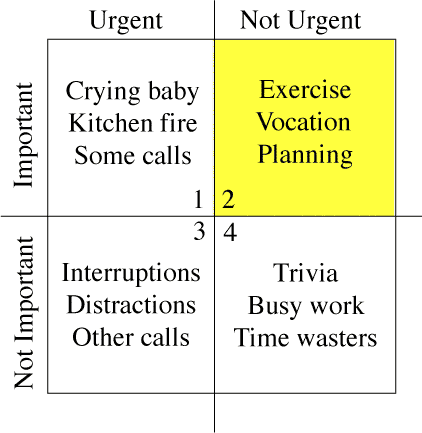Asperger’s Syndrome and Time-management
I am working on my time-management.
 In today’s world our lives seem governed by clocks and calendars, dates and deadlines. From our first classes at school, to organising work schedules or planning a journey, we can feel tied to timetables.
In today’s world our lives seem governed by clocks and calendars, dates and deadlines. From our first classes at school, to organising work schedules or planning a journey, we can feel tied to timetables.
Indeed, for many people on the spectrum routine can be a very important part of everyday life. It not only helps us orientate our life, it can also help reduce anxiety and deal with some of the pressures that may surround us. It seems that if we want to get anything done or enjoy any activity time-management is important.
Many of us learn some time management skills at school, but we often find ourselves in positions where we need to focus on it again. Now that I’m working from home it is becoming particularly important for me. As someone with Asperger’s syndrome there are some particular challenges.
Time looks different to me with Asperger’s syndrome
My Asperger’s means that I’m not always aware of the passage of time. I can more easily get absorbed in an activity and find that a lot of time as passed. This can be an advantage when I need to be focused on getting one thing done, but on the other hand it means that I can get carried away with one thing and others don’t get done. Transitions can be particularly difficult. I may need to cue to know when to leave one task and transition to another as I don’t always keep an eye on the time. This is where I need to experiment with using timers and alarms on my phone more.
I need to plan my time better
 I am also aware that I need to prioritise tasks and budget my time better. One simple technique I’ve used in the past is to use a grid to help in deciding which tasks are urgent and which are important. Then to decide when to do each task and how much time to allocate them. I do write down these tasks in my diary but I think I need to be more thorough. A page a day diary might be helpful here. This will tell me at a glance what I am supposed to be doing each day. Then challenge then is to stick to the plan as it can be very tempting to continue on with a task or something related to it when we have actually planned to do something else.
I am also aware that I need to prioritise tasks and budget my time better. One simple technique I’ve used in the past is to use a grid to help in deciding which tasks are urgent and which are important. Then to decide when to do each task and how much time to allocate them. I do write down these tasks in my diary but I think I need to be more thorough. A page a day diary might be helpful here. This will tell me at a glance what I am supposed to be doing each day. Then challenge then is to stick to the plan as it can be very tempting to continue on with a task or something related to it when we have actually planned to do something else.
I need to arrange my tasks more efficiently.
I am also very aware that I need to develop the skill of being more efficient arranging tasks in the most efficient way. This may include budgeting time so that you are doing a series of similar tasks. For example, I could choose to do all my email based tasks in the morning. Also if I have two people I need to see, rather than seeing them on different days and travelling twice I could plan to meet them at the same location on the same day one after the other.
Please join me in managing time
I will keep you updated with my progress and findings as I continue working on my time-management. I am writing this partly to make myself accountable, but also so that you might benefit from these insights. These issues can be particularly challenging for those of us on the autistic spectrum. Please join me in working on these skills and let me know what you find helpful with your own challenges.
Further reading
Teaching Time-Management to learners with autism spectrum disorder
